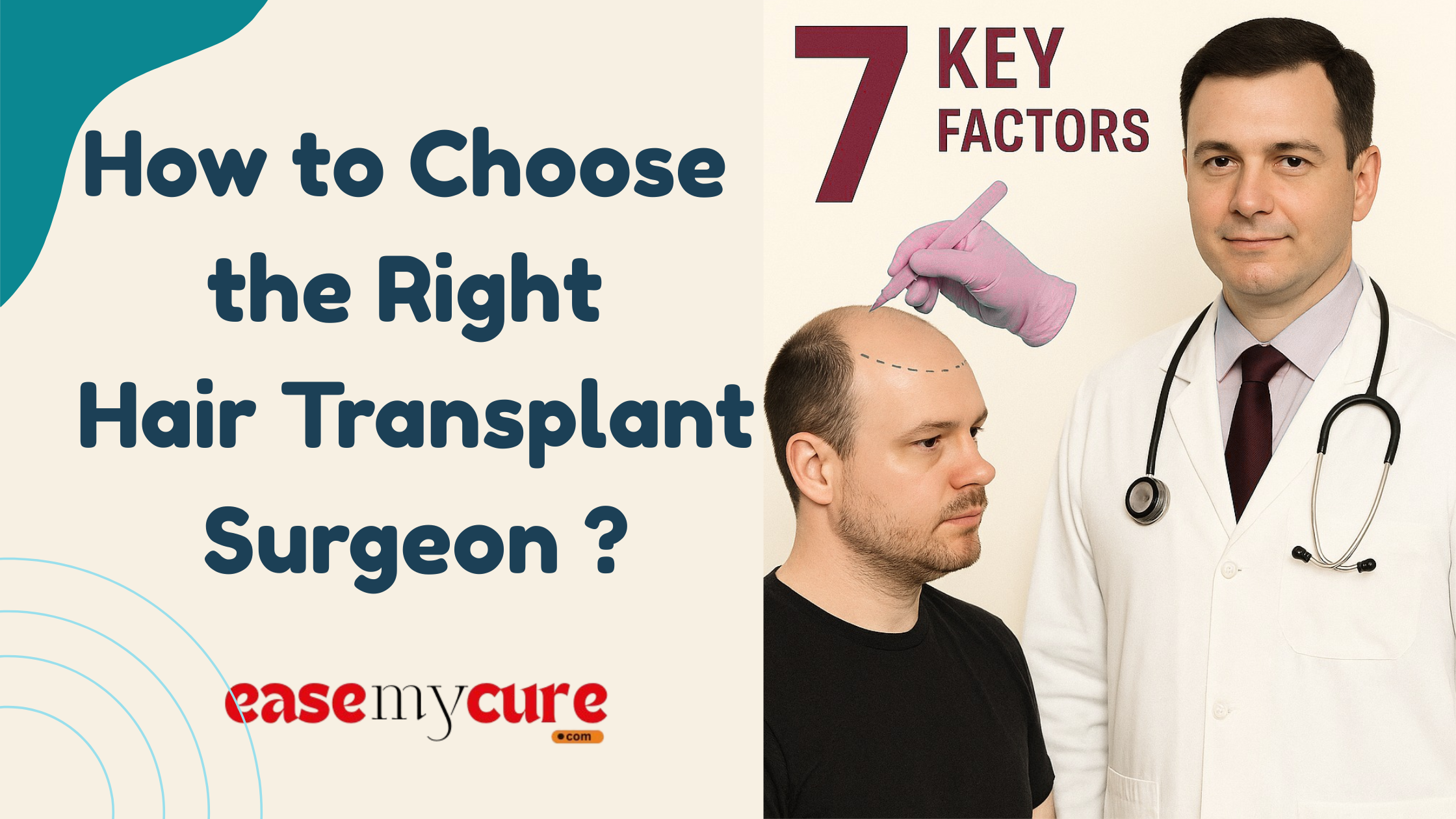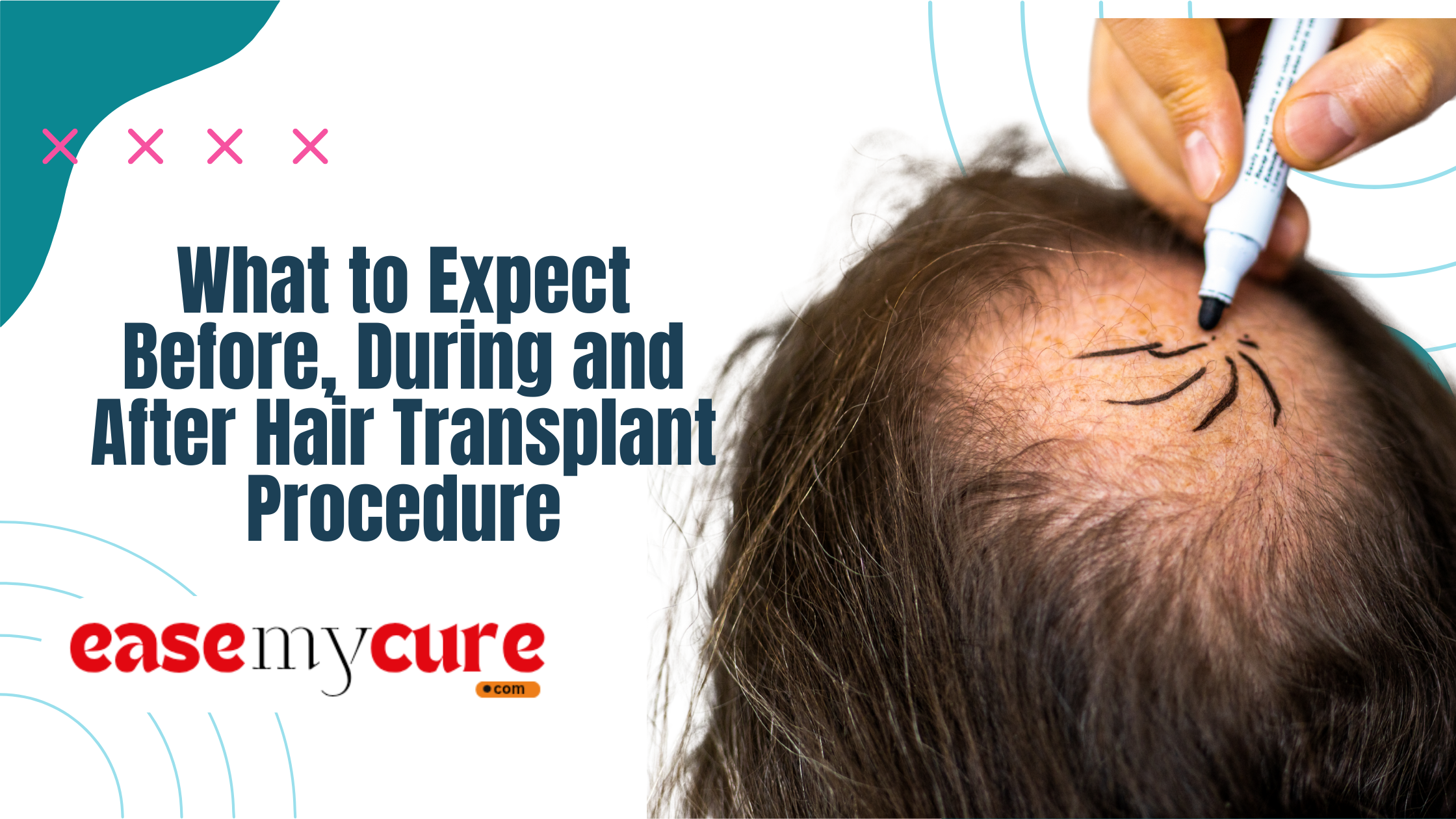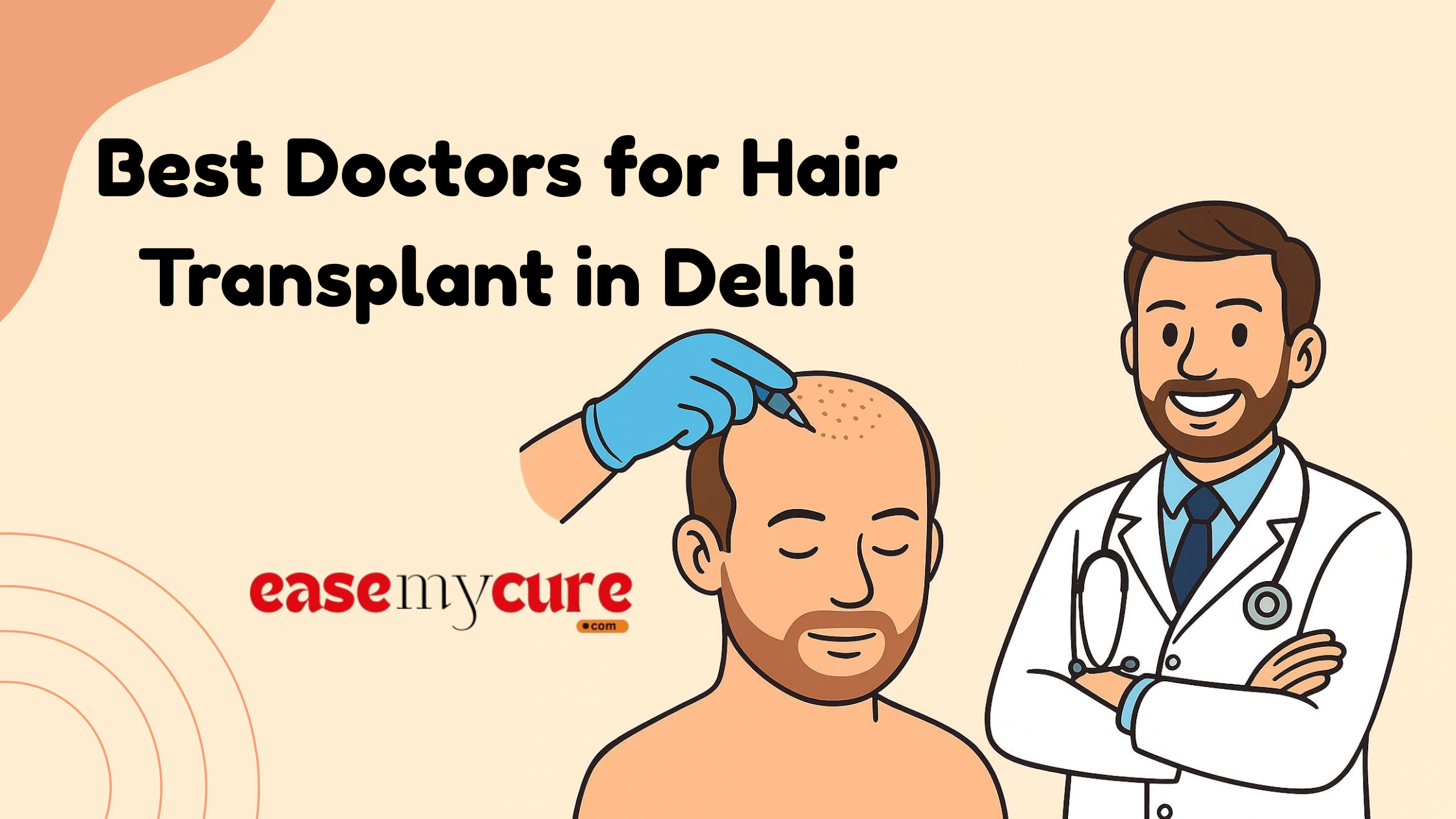A hair transplant is a decision that can bring back your confidence, beyond just improving your appearance. But getting natural and long-lasting results depends on one thing: choosing the right hair transplant surgeon.
Many people get carried away by low-cost deals or eye-catching ads. They end up with surgeons who lack proper training or experience. This often leads to poor results, visible scars, infections, or even permanent damage.
The good part is that you can avoid these risks. All you need to do is make an informed choice. In this blog, you’ll find 7 important factors to check before selecting a hair transplant surgeon. You’ll also get extra tips to verify credentials, so you can protect your investment and achieve results that feel right for you.
Why Choosing the Right Hair Transplant Surgeon Matters
The outcome of a hair transplant depends on several factors, but largely it depends on the surgeon’s skill and experience. Tools and techniques matter, but they only work as well as the person using them.
A good surgeon makes sure you get:
- A natural-looking hairline that fits your face.
- High graft survival for thicker, fuller hair.
- Less scarring and faster recovery with careful techniques.
If you pick the wrong surgeon, you risk:
- Hair that looks patchy or unnatural.
- Losing money and dealing with disappointment.
- Infections, heavy scarring, or even permanent damage to hair follicles.
In the end, your choice of surgeon decides if the transplant feels worth it or not. That’s why you need to know what qualities to look for before you move forward.
7 Key Factors to Consider When Choosing a Hair Transplant Surgeon
When you’re choosing a hair transplant surgeon, the details matter. It’s not just about who offers the lowest price—it’s about skill, safety, and results that look natural. The points below will help you know exactly what to check before making your decision.
1. Professional Qualifications and Certifications
Start by checking if your surgeon is medically qualified to perform hair transplants. They should hold a medical degree with a specialization in Dermatology, Plastic Surgery, or Cosmetic Surgery.
Also, see if they are members of trusted associations like the Association of Hair Restoration Surgeons of India (AHRS) or the International Society of Hair Restoration Surgery (ISHRS). These memberships show that they follow proper safety standards and ethical practices.
Avoid clinics run by technicians or non-medical staff. They are not trained to manage complex procedures or deal with complications.
2. Experience and Track Record
Experience makes a big difference. A surgeon with 5–10 years in hair transplantation and 1,000+ successful procedures is more likely to deliver consistent results.
Ask about their success with cases similar to yours. A strong history of satisfied patients is one of the clearest signs of reliability.
3. Before-and-After Photos and Patient Testimonials
Always review the surgeon’s portfolio. Look for before-and-after photos that show natural hairlines, variety in cases, and consistent results.
Also, check hair transplant reviews on Google, forums, or social media. Genuine feedback usually mentions specific details about the consultation, surgery, and recovery. Be cautious if the reviews sound generic or too polished.
4. Advanced Techniques and Technology
Hair restoration now includes methods like FUE (Follicular Unit Extraction), FUT (Follicular Unit Transplantation), DHI (Direct Hair Implantation), and even robotic-assisted transplants.
Your surgeon should know multiple techniques and suggest the one best suited to you. Clinics that use advanced tools, microscopes, and graft preservation methods generally achieve better graft survival and natural results. A personalized treatment plan is another sign of a patient-focused approach.
5. Artistic Skill and Natural Hairline Design
A transplant is not only about medical skill—it’s also about aesthetics. A good surgeon designs a hairline that matches your face shape, age, and natural density.
They should know how to create natural angles, distribute density correctly, and blend new hair with existing strands. This expertise is what separates a natural transplant from an obvious one. Always ask about their approach to hairline design.
6. Clinic Facilities and Support Staff
Even the best surgeon needs the right team and environment. When evaluating a clinic, look for accredited facilities with modern equipment, strict hygiene, and a trained support staff.
Post-operative care and follow-up services are also important. If a clinic looks poorly maintained or the staff seems untrained, consider it a warning sign.
7. Transparent Pricing and Consultation Approach
Hair transplant cost matters, but it should never be your only factor. Be careful of clinics that advertise very low prices, as they may rely on shortcuts, hidden fees, or unskilled staff.
A trustworthy surgeon will give you a clear cost breakdown, explain graft counts and surgery type, and include aftercare. They’ll also provide a proper consultation with scalp analysis, realistic expectations, and a personalized plan. Avoid anyone who promises “full hair in one session.”
Remember: a hair transplant is a long-term investment. Choose quality over shortcuts.
Bonus Tips: How to Verify Your Surgeon’s Credentials
Once you’ve shortlisted a surgeon, take a little time to double-check their background. Here’s what you can do:
- Check their medical license and board registration online.
- Confirm if they’re members of recognized organizations such as ISHRS or AHRS.
- Prepare a few consultation questions, for example:
- How many cases like mine have you handled?
- Which technique do you suggest for me, and why?
- What risks should I know about, and what recovery can I expect?
If you still feel unsure, get a second opinion before making your final decision.
Protecting Both Your Hair and Confidence
Choosing the right hair transplant surgeon is the most important step if you want safe, natural, and lasting results. You should look at seven factors before deciding: qualifications, experience, patient results, techniques, artistic skill, clinic facilities, and clear pricing. Each of these will help you judge whether a surgeon is the right fit for you.
Don’t rush the process. Take time to research, compare options, and ask direct questions. This way, you protect both your hair and your confidence.
Ready to move forward? Book consultations with the best hair transplant clinic in your area, check their credentials yourself, and choose the one who can give you results you’ll feel good about.
Also Check:- Best Hair Transplant Clinics in Delhi







